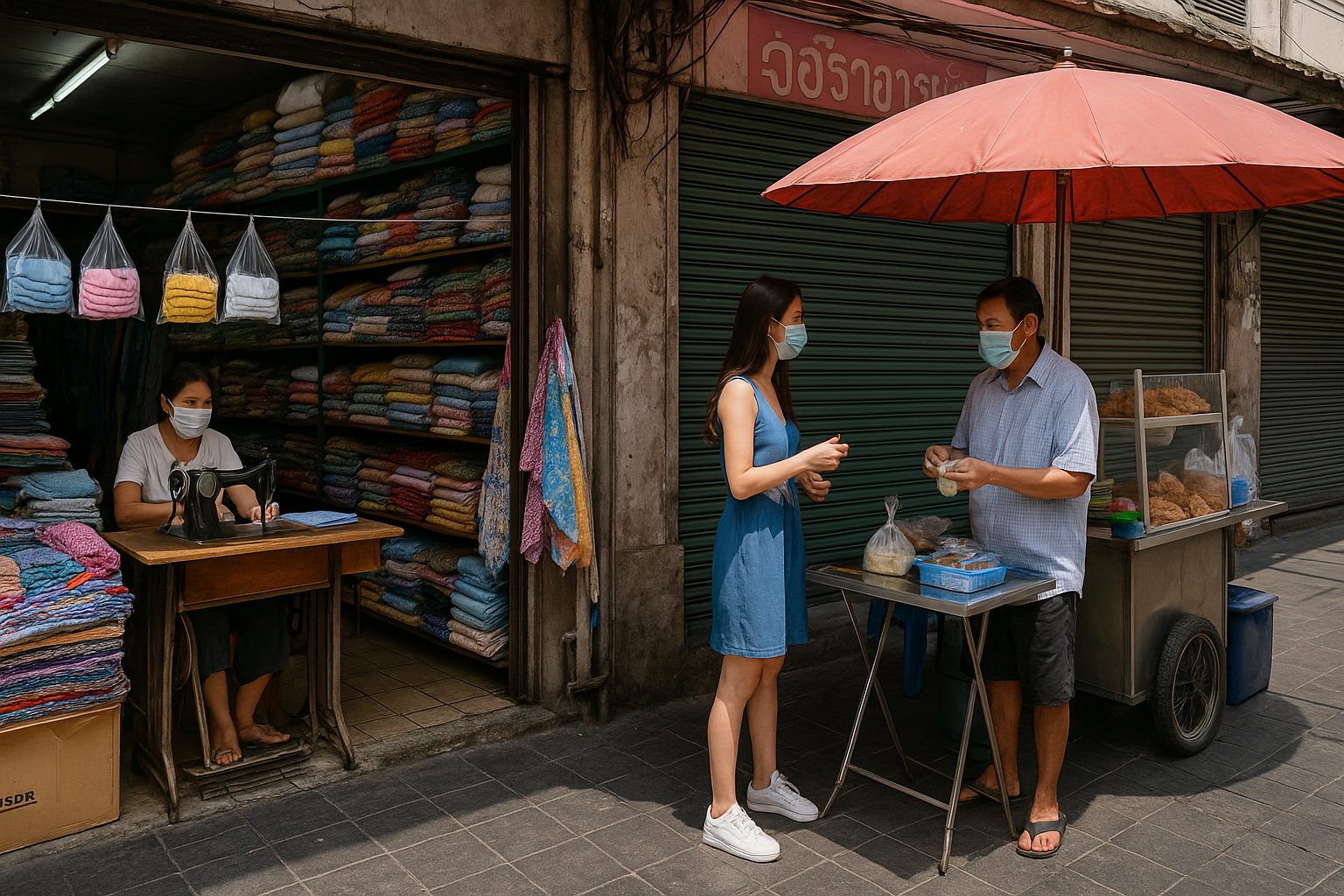Bangkok-Based MSMEs Gained Most from COVID Aid, New ADB Index Study Reveals
The ADB and Waseda University developed a data-driven SME Development Index (SME-DI) using firm-level data from Thailand to assess MSME performance and policy impact. Findings reveal that government support during COVID-19 disproportionately benefited Bangkok-based firms, leaving rural MSMEs underserved.

In a pioneering initiative from the Asian Development Bank (ADB), Waseda University, and UTokyo Economic Consulting Inc., a new empirical framework is reshaping how policymakers evaluate and support micro, small, and medium-sized enterprises (MSMEs). Authored by Shigehiro Shinozaki of ADB and Daisuke Miyakawa of Waseda University, the study introduces a Small and Medium-Sized Enterprise Development Index (SME-DI) built on probabilistic principal component analysis (P-PCA). Using rich firm-level data from Dun & Bradstreet, covering 49,565 Thai MSMEs over 2016–2023, the research offers an advanced and objective tool for capturing the true state of enterprise development. By applying statistical modeling to granular data, this project marks a departure from traditional, often overly aggregated, policy metrics and opens new pathways for more inclusive and evidence-based economic planning.
Thailand’s MSMEs: Resilient but Unequally Supported
Thailand’s economy is heavily reliant on MSMEs, which account for 99.5% of all enterprises and more than 70% of national employment. Dominated by wholesale and retail trade, services, and manufacturing, these enterprises are spread across both urban and rural regions, with over 83% based outside the capital, Bangkok. Despite a sharp contraction in 2020 due to the COVID-19 pandemic, many MSMEs showed a V-shaped recovery the following year, thanks in part to government intervention. However, the rebound was not uniform. Firms in Bangkok, particularly those in manufacturing, were more successful in leveraging emergency support such as credit subsidies and wage compensation. In contrast, rural and sectorally vulnerable MSMEs, especially those in wholesale and agriculture, faced sustained challenges, including falling profits and limited access to financial aid or institutional credit during and after the pandemic.
Behind the Index: Tracing MSME Stress and Recovery
Using the P-PCA method, the researchers distilled 11 business performance indicators, both real and financial, into three principal components, together explaining 87% of data variation. The first component traced the immediate pandemic shock: a sharp drop in sales and profits but an uptick in borrowing and employment, likely bolstered by government relief packages. The second component highlighted firms with shrinking size and profitability, particularly those that failed to secure sufficient credit. The third component, meanwhile, reflected volatility in balance sheets, such as rising liabilities and fluctuating working capital, without necessarily corresponding shifts in real business activities. Together, these indicators capture the layered and uneven nature of MSME stress and response across Thailand's economic landscape.
Sectoral and Regional Fault Lines Exposed
A closer look at sectoral dynamics reveals striking differences in how MSMEs fared. Wholesale trade, a major segment, saw firms in some regions achieve profitability pre-pandemic with minimal capital. But during the pandemic, profitability dropped despite increased working capital, pointing to efficiency losses. Regional disparities were just as stark. Bangkok-based manufacturers, for instance, managed cost-cutting through layoffs and accessed credit effectively, experiencing relatively mild disruption. On the other hand, provincial manufacturing MSMEs saw sharp profit declines and failed to benefit from government aid in time. Agriculture presented a grimmer picture: capital-based agribusinesses saw revenue and profits shrink without improvement in financial conditions, while rural counterparts faced declining profitability and worsening access to bank credit, even where working capital availability superficially improved. The analysis suggests that government support, though helpful in pockets, was unevenly distributed and failed to lift many struggling segments.
Data Simulations Prove Promise and Caution
To test the SME-DI’s practical applicability, the researchers conducted small sample simulations using 50% and 10% subsets of the original dataset. The results were telling. The 50% sample closely mirrored the full-data outcomes, affirming the index’s robustness and feasibility for use in data-scarce contexts. However, reducing the sample to just 10% led to discrepancies, particularly in detecting financial patterns, highlighting the importance of data volume and representativeness. Additional tests that separated real and financial indicators confirmed that both sets of variables contributed significantly to the SME-DI’s reliability. Real-side variables like sales and employment aligned with trends in financial stress, such as rising credit dependency and ballooning liabilities. This underscores the value of using multidimensional data for holistic policymaking.
A Call for Smarter, More Inclusive Policies
The study’s findings send a clear message: while some MSMEs weathered the pandemic with policy support, many, especially those in rural regions and non-manufacturing sectors, remained underserved. Government aid disproportionately favored Bangkok-based enterprises, particularly in manufacturing. MSMEs in wholesale trade and agriculture, especially in provincial areas, were left behind with limited access to credit and no effective way to rebuild profitability. The study concludes that MSME policies must move beyond broad-based strategies and adopt targeted, data-driven approaches. Tools like the SME-DI offer the precision required to identify which sectors and regions need help, enabling governments to deliver support more equitably and effectively. In the case of Thailand, rebalancing aid toward rural and neglected sectors is not just a question of fairness; it is essential for building a resilient and inclusive economy in the post-pandemic era.
- FIRST PUBLISHED IN:
- Devdiscourse
ALSO READ
Government Initiates Export Boost Scheme for MSMEs
Delhi's Green Transformation: Sadbhavana Park Leads the Way
Sunny Pang Joins Indian Cinema with Powerful Punch in 'Lakadbaggha 2'
A New Green Gem: Inauguration of Sadbhavana Park in Delhi
Sunny Pang Joins Indian Cinema: A Crossover in 'Lakadbaggha 2'










